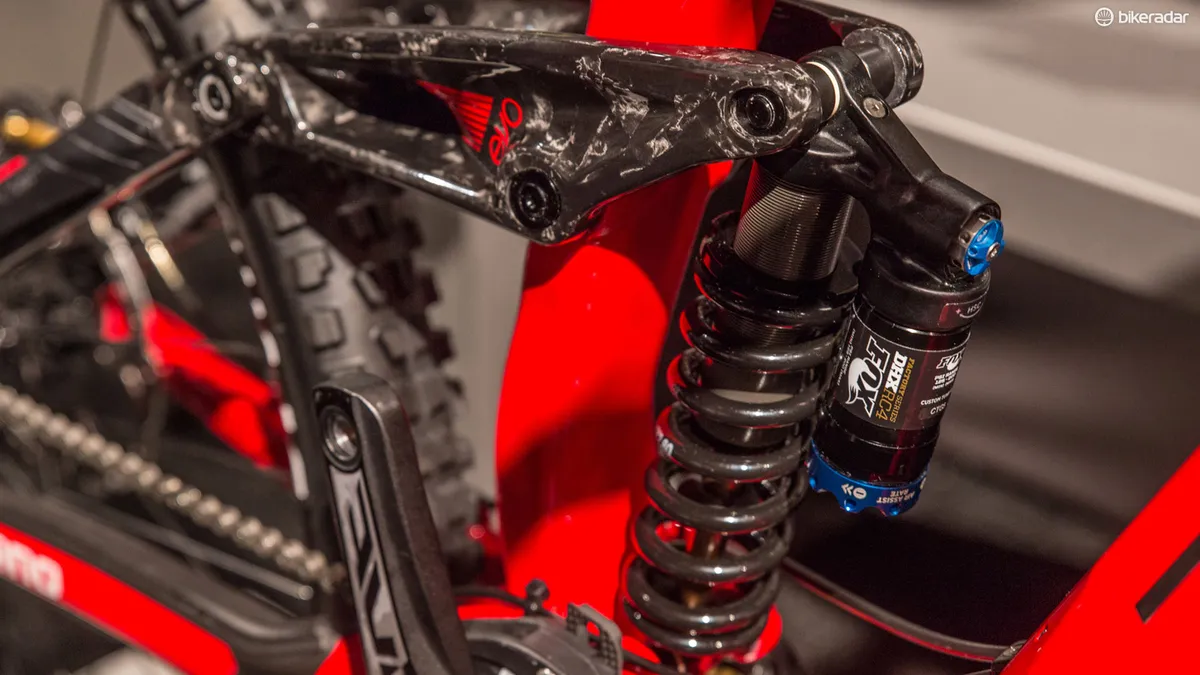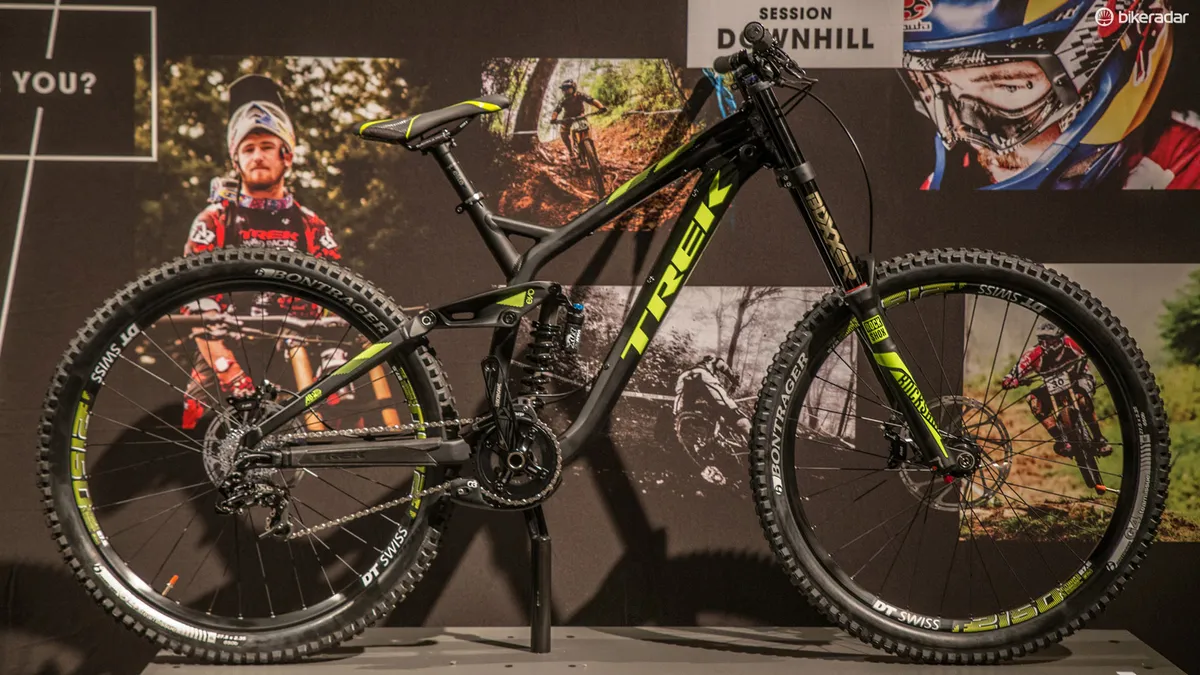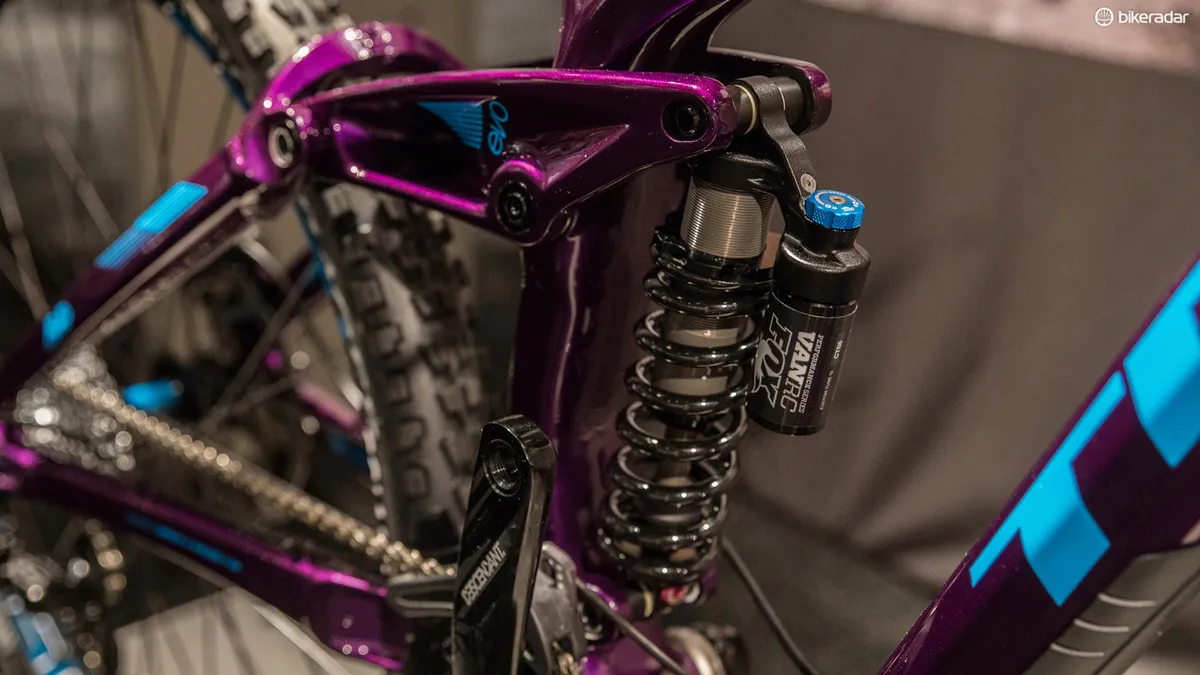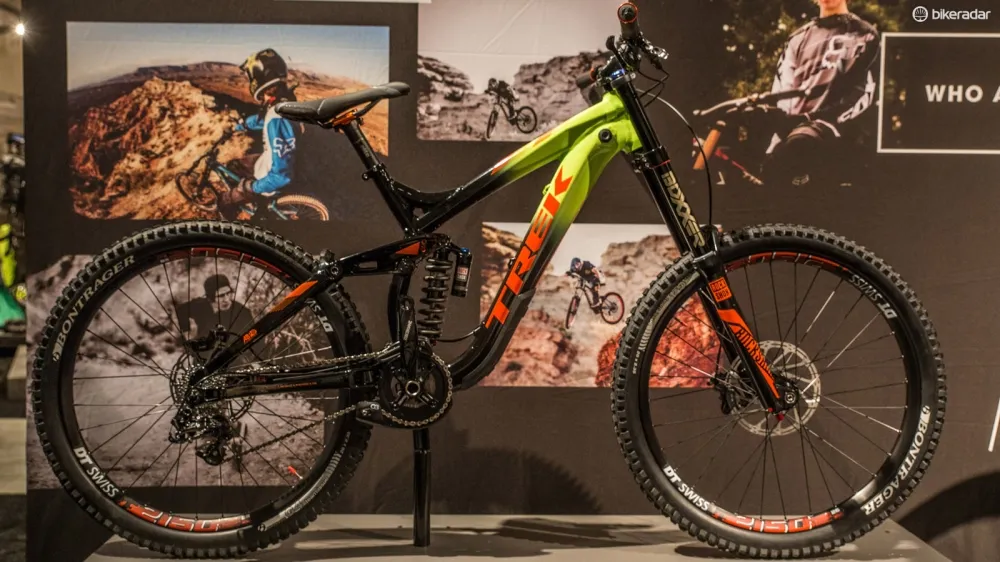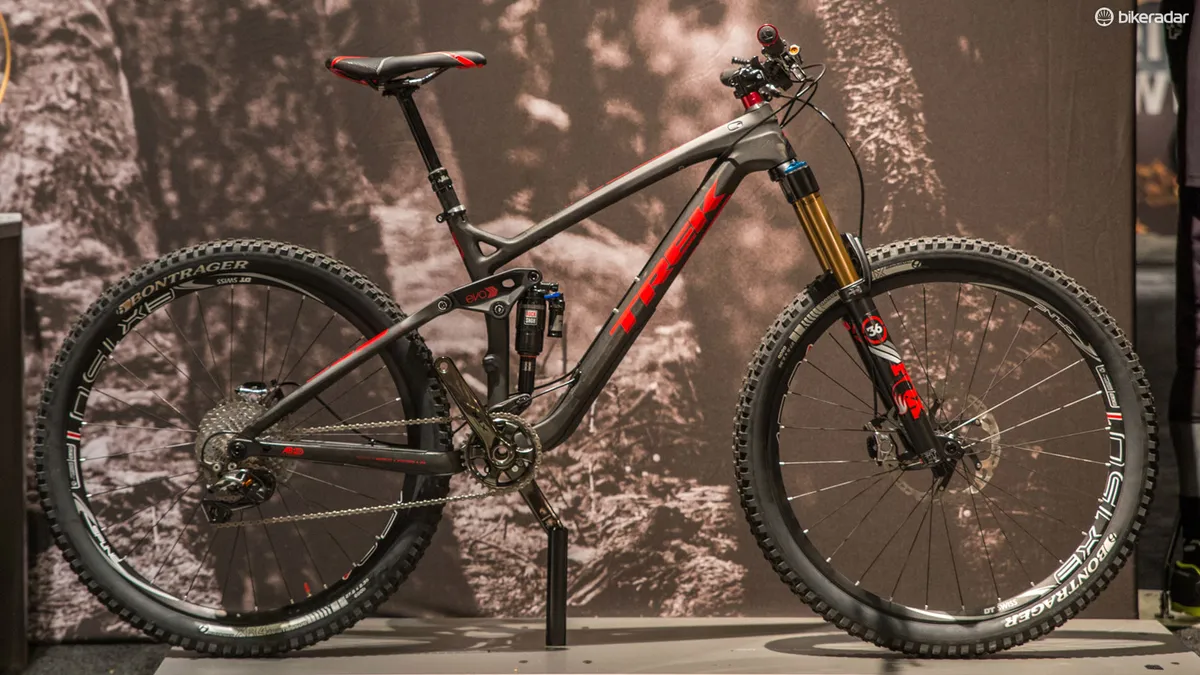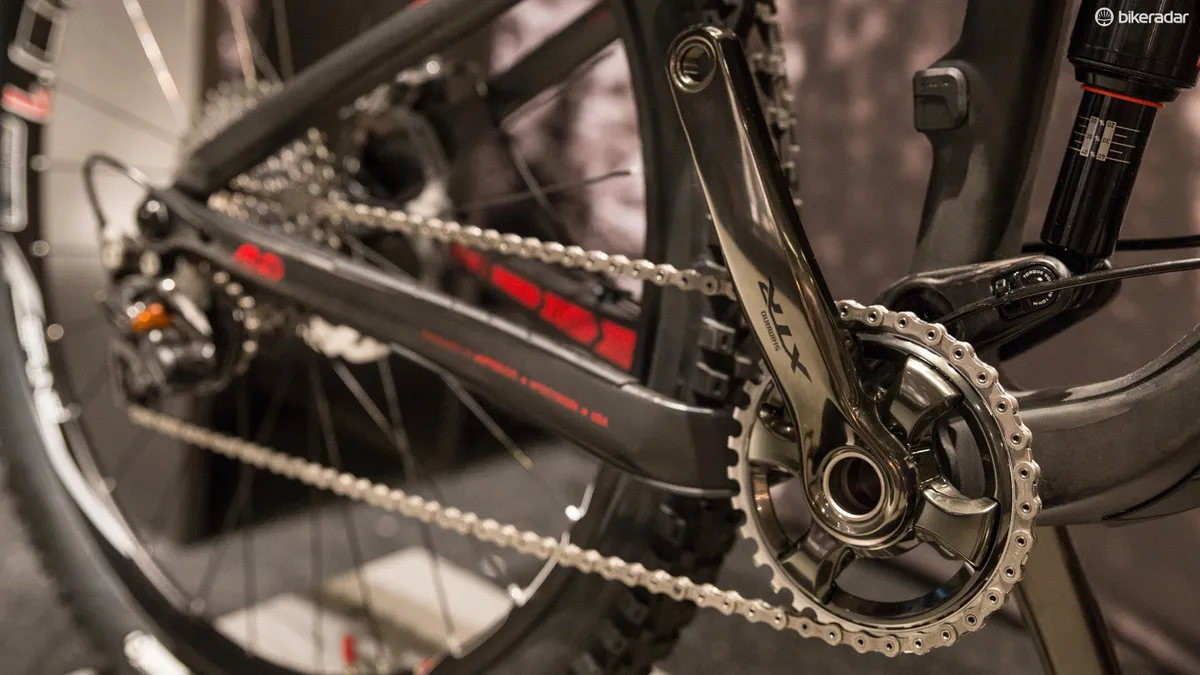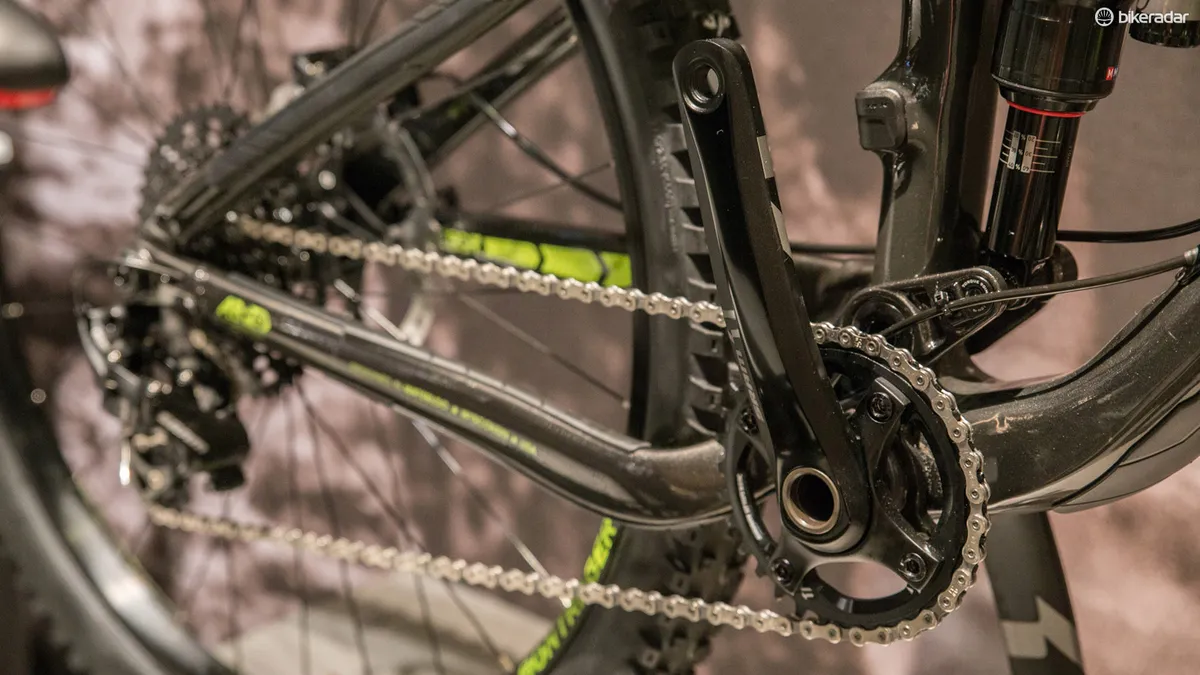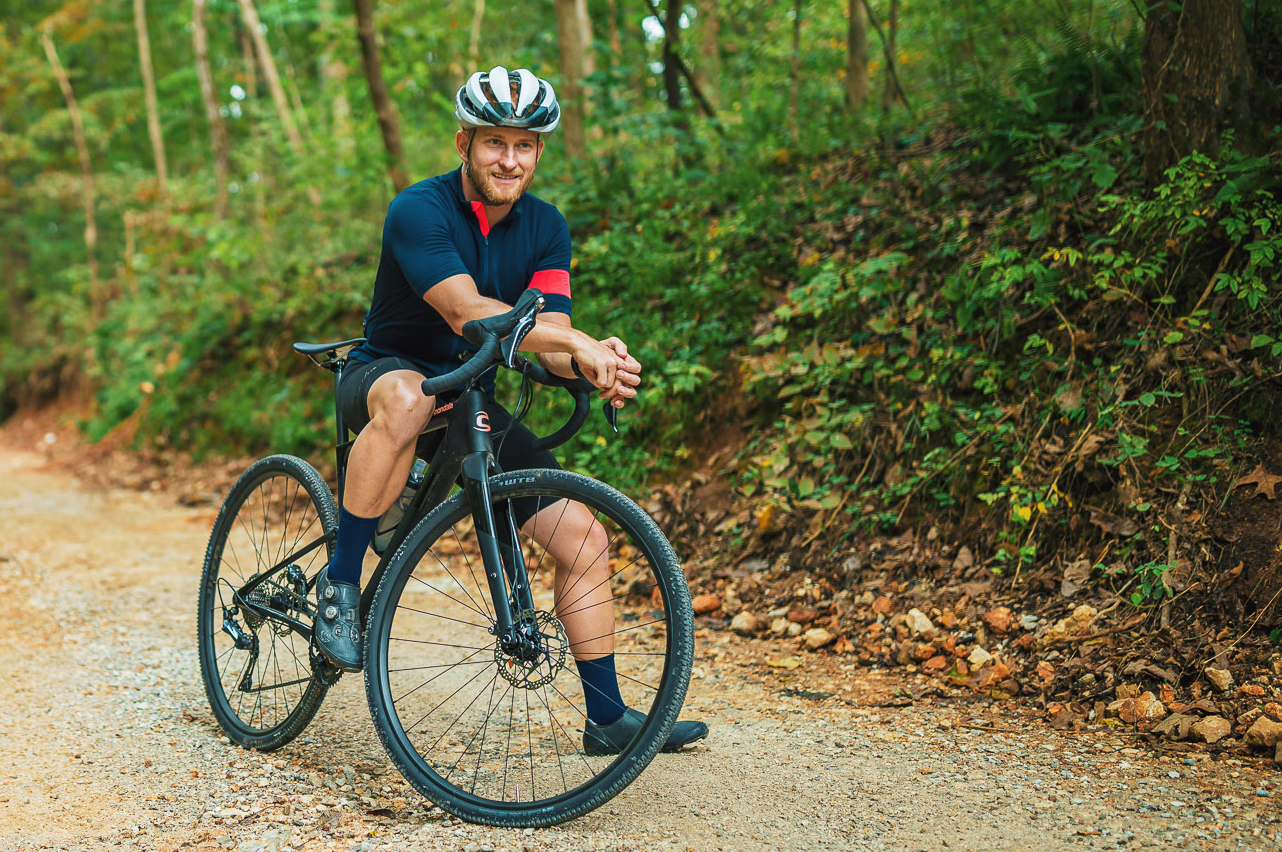Trek has rolled out a plethora of new products and technologies this summer. We rode the all-new Fuel EX 27.5 9.8, delved into the new RE:aktiv shock technology Trek co-developed with Penske Racing Shocks, and highlighted Trek’s new Boost 148 rear axle spacing.
Check out more of our Trek 2015 coverage:
Being the large company that Trek is, there’s even more to be unveiled. BikeRadar traveled to Trek World in Madison, Wisconsin, to get a look at some of the other new bikes will be showing up in Trek dealers’ showrooms in the coming months.
Split Sessions
For 2015, the Session family is divided into two distinct lines: gravity rigs for racing and big hit bikes for freeride antics and park riding. The Session 9.9 and Session 88 have been redesigned around 27.5in wheels, while the Session Park 9.8 and Session 8 Park stick with 26in wheels for flickability.
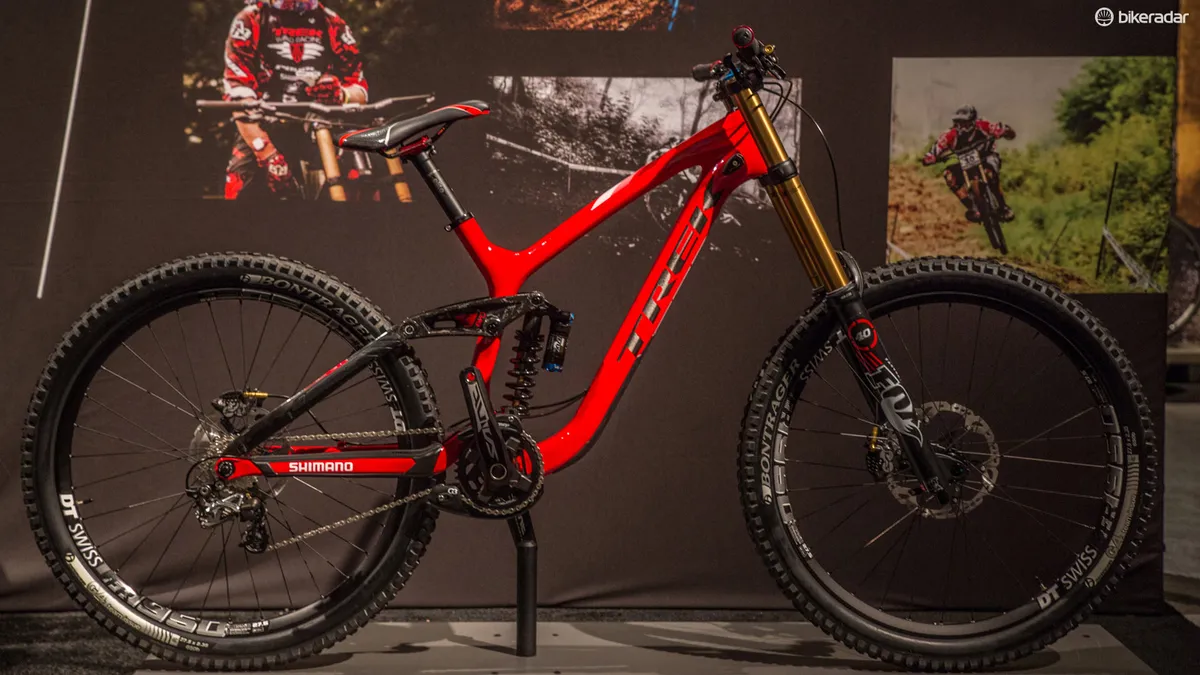
We’ve already seen the new 27.5in downhill race bike on the track under Trek World racer Brook Macdonald
As one might expect when re-designing a bike around slightly larger wheels, the 2015 Session does see some geometry changes. The chainstay length grows, but not by much. It’s a scant 4mm longer than the 26in Session it replaces. To compensate for the longer fork, the head tube shrinks by 5mm.
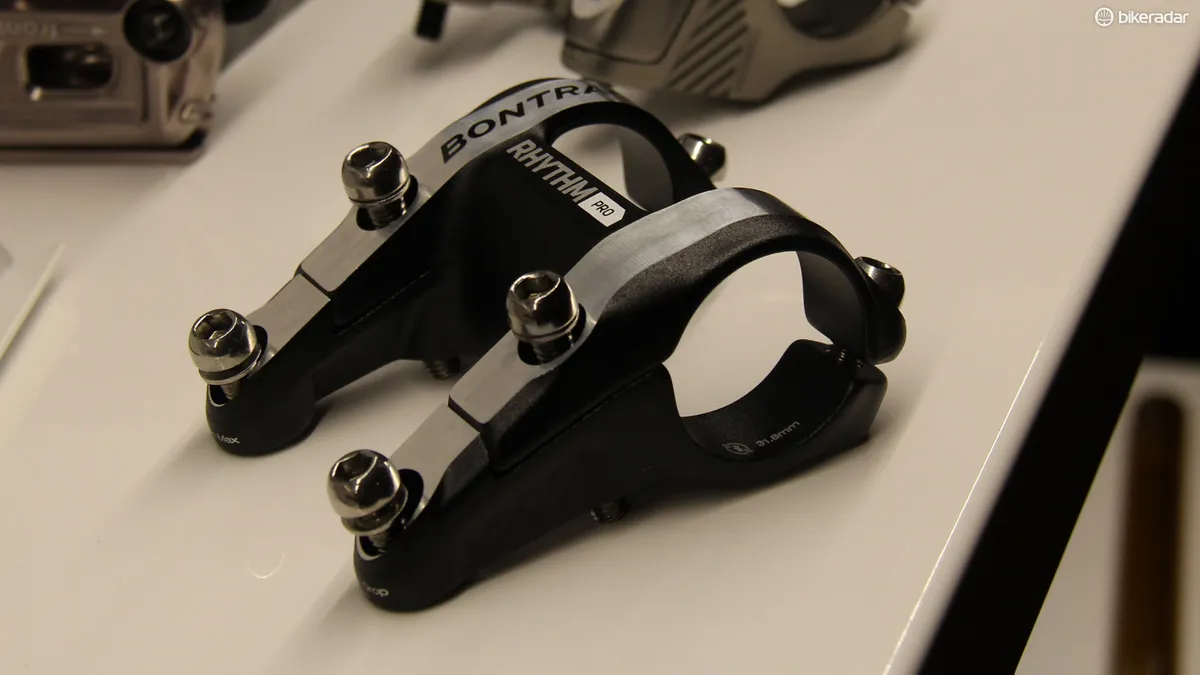
Trek’s house brand, Bontrager, has also developed a new direct-mount stem that positions the handlebar slightly lower, so Trek’s racers can dial in their fit just as they would on a 26in gravity bike
Trek engineers did their best to maintain the handling characteristics of the new bike, as team racers were quite happy with the handling of the 26in version. “It’s a better small wheel,” said Trek engineer Dylan Howes of the 27.5in Session.
The head tube angle of the new Session remains 63.6 degrees when sagged. Bottom bracket height remains unchanged, though, of course, bottom bracket drop increases with the larger wheel. The shock rate did change slightly, with a more progressive end stroke for more bottom-out control.
Perhaps more significant than the up-sized wheels is the incorporation of a full carbon rear on the top-end Session 9.9. The previous versions of the Session used carbon seatstays with alloy chainstays.) The use of carbon chainstays is said to shave approximately 300 grams from the new frame.
The Session 9.9 and 88 will be available this fall. Pricing for the full carbon Session and a top of the line Shimano Saint built 9.9 is US$8,929. The Session 88, with an alloy frame and a more pedestrian kit will retail for US$5,249.
While 27.5in wheels may be a “better small wheel” for racing, Trek’s freeride and slopestyle athletes still prefer the agility of 26in wheels. The Session Park was designed to meet the needs of Trek C3 athelete Brandon Semenuk. The frame was introduced last season as a frame-only option.
For 2015, Trek is offering two complete Session Park bikes — one with a carbon frame and alloy chainstays, as well as a full alloy bike. The Session Park uses the fame front triangle as the current 26in Session models, with a shorter rear end. The new rear ends measure in at 420mm.
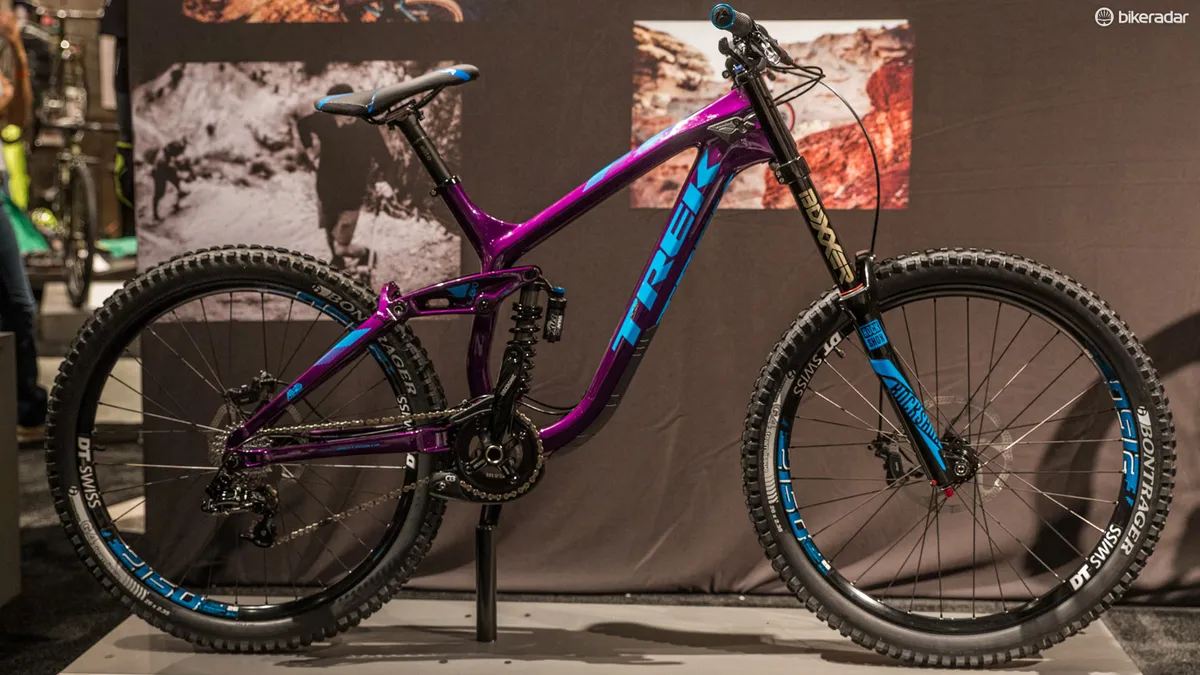
The Session Park 9.8 will now available as a complete bike
Travel also sees a slight reduction from 210mm to 190mm, as well as a more progressive spring rate for more “pop” when taking to the air.
The Session Park 9.8 and Session Park 8 will be available this fall. The Session 9.8 will retail for US$6,829, while the Session Park 8 will go for US$4,199.
Slash goes carbon
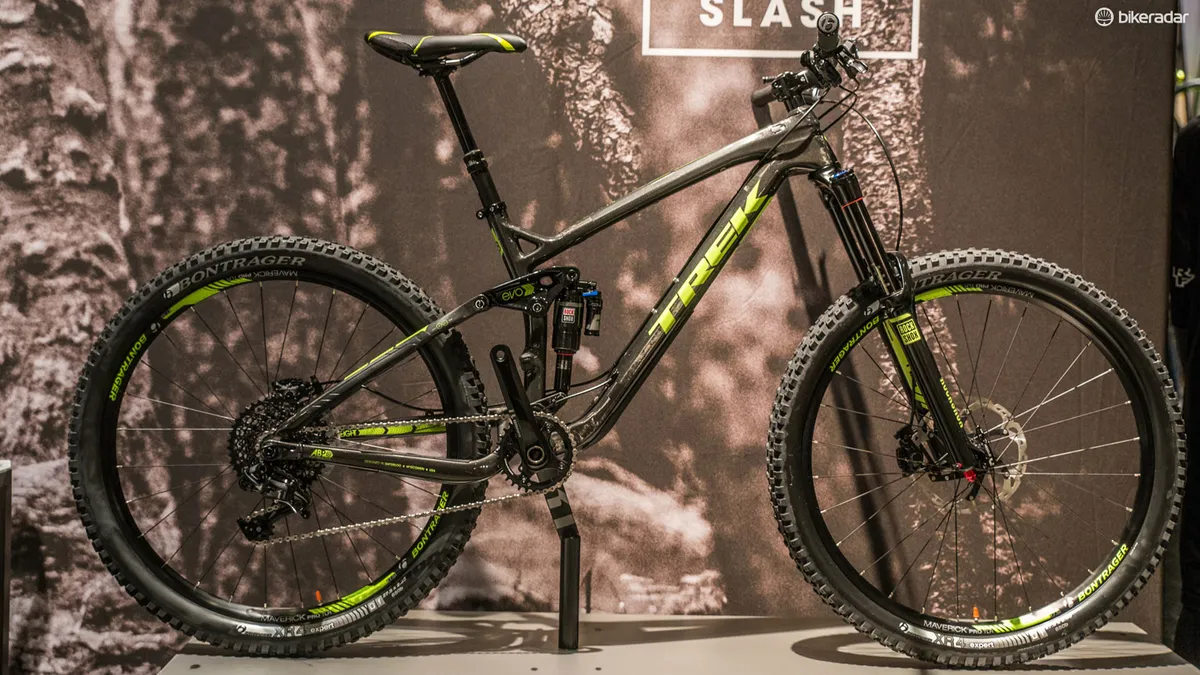
For 2015, the top two Slash models gets reworked in carbon
Trek’s enduro racers split their time aboard the 140mm travel Remedy 29 and the 160mm Slash 27.5.
The Slash 9.9 gets a full carbon frame, while the Session 9.8 will come with a carbon mainframe and alloy chainstays. Trek claims the adoption of carbon chainstays on the top bike saves over 400g (nearly a pound) over alloy chainstays. Geometry and suspension travel remain unchanged from their 2014 counterparts.
All four bikes in the Session family get Monarch Plus shocks, with the top three bikes getting adjustable-travel forks.
All the bikes in the Slash line will be available this fall. The Slash 9.9 will retail for US$8,399, while the Slash 9.8 will retail for US$5,769.
